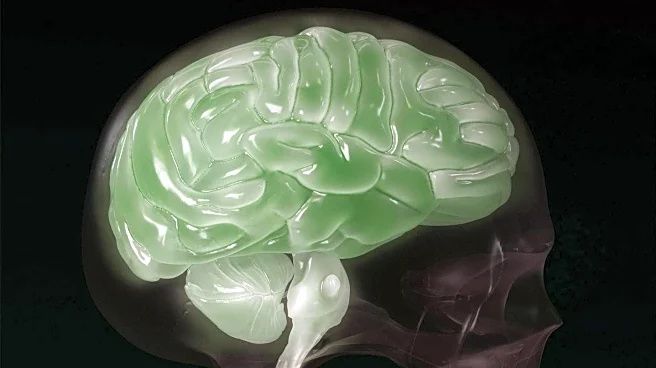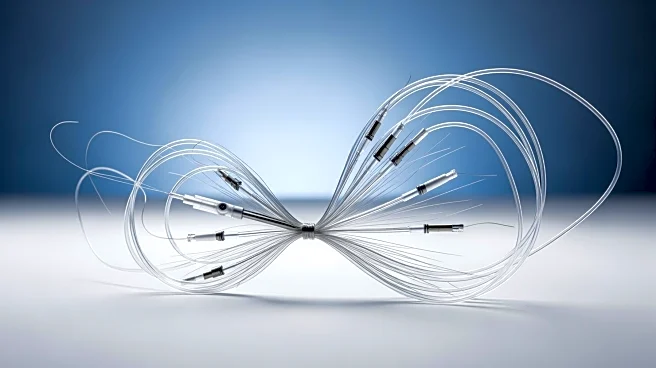What's Happening?
President Trump recently disclosed undergoing an MRI, with results described as 'perfect.' While specifics of the MRI type were not provided, discussions suggest it may have been a brain scan. Neurologists
outline several reasons a 79-year-old might need a brain MRI, including memory complaints, risk of Alzheimer's, and cerebrovascular disease. The prevalence of mild cognitive impairment and dementia increases with age, making brain scans a common diagnostic tool for older adults. Other potential reasons for an MRI include stroke risk, subdural hematomas, and persistent dizziness.
Why It's Important?
Understanding the medical reasons for a brain MRI in older adults highlights the importance of proactive health monitoring and early diagnosis. As the population ages, healthcare systems must adapt to address the growing prevalence of cognitive disorders and cerebrovascular conditions. The discussion around President Trump's MRI may prompt public awareness of age-related health issues, encouraging individuals to seek regular check-ups and screenings. Medical professionals might also consider advancements in diagnostic technology to improve accuracy and patient outcomes.
What's Next?
Future healthcare strategies may focus on enhancing diagnostic capabilities for age-related conditions, integrating new technologies and biomarkers. Public health campaigns could emphasize the importance of cognitive health, promoting lifestyle changes to reduce risk factors. Research into Alzheimer's and other neurodegenerative diseases may receive increased attention, driving innovation in treatment and prevention. As awareness grows, individuals may become more proactive in managing their health, seeking early intervention for potential issues.
Beyond the Headlines
The conversation around President Trump's MRI underscores broader societal concerns about aging and health, reflecting the need for comprehensive care strategies. This discussion may influence cultural attitudes towards aging, emphasizing the value of maintaining cognitive and physical well-being. The focus on diagnostic tools highlights the intersection of technology and healthcare, exploring how innovations can enhance patient care and quality of life.









